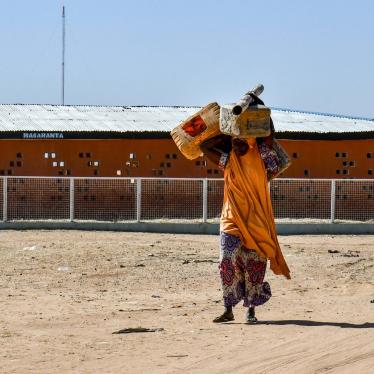Denmark’s recent decision to seize cash and valuables from refugees to help cover the costs of hosting them rightly sparked global outrage. But another underhanded deterrent scheme to limit the number of asylum seekers heading for Denmark has, so far, gone largely unnoticed.
Alarmed by a significant rise in asylum applications from Eritreans in 2014 – an average of 250 a month, compared to a total of just 235 cases in the previous six years – Danish officials hastily visited Eritrea, a state with a dismal record of human rights abuse and repression. Based on the flimsiest of evidence, the Danish Immigration Service published a report in November 2014, instructing officials who review asylum claims to stop ruling that Eritrea’s policy of indefinite national service and punishment for leaving the country without permission “in itself” amounts to persecution.
The United Nations refugee agency and Human Rights Watch, among others, cried foul, while two of the report’s researchers said their bosses were intent on reaching pre-determined conclusions. A key academic cited in the report also disassociated himself from it and said Danish authorities had “basically ignored a lot of facts and hand-picked a few that fit the conclusion.”
In what appeared to be a striking U-turn, the Danish Immigration Service at first seemed to reject the findings of its own report, announcing on December 9, 2014, that asylum officials should continue to protect Eritreans who fear persecution as a result of their illegal exit and desertion or draft evasion. But just nine days later, a second U-turn brought Eritreans full circle as the authorities republished the November report, this time omitting comments from the critical academic. This misleading report remains the authoritative guide for asylum officials.
So what happened next? In 2015, only 170 Eritreans claimed asylum in Denmark, a huge fall from the 2,275 who did so in 2014. Denmark saw a 30 percent rise in asylum claims over this period, and more Eritreans reached the European Union in 2015 than in 2014, so the plunge in cases can’t be explained by an overall drop in numbers.
Yet when Denmark then processed its asylum claim backlog from 2014, it gave a whopping 2,900 out of 2,960 Eritreans protected status. Asylum officials are ignoring their own ministry’s deeply flawed report and, in line with the December 9, 2014 statement, continue to fairly assess asylum claims.
Denmark’s scare tactics have worked. Its flawed, headline-grabbing report has put off Eritreans who now stay away. But the authorities there are respecting the law, and rightly protect those few Eritrean refugees who do still reach Denmark from the persecution so many still flee.










